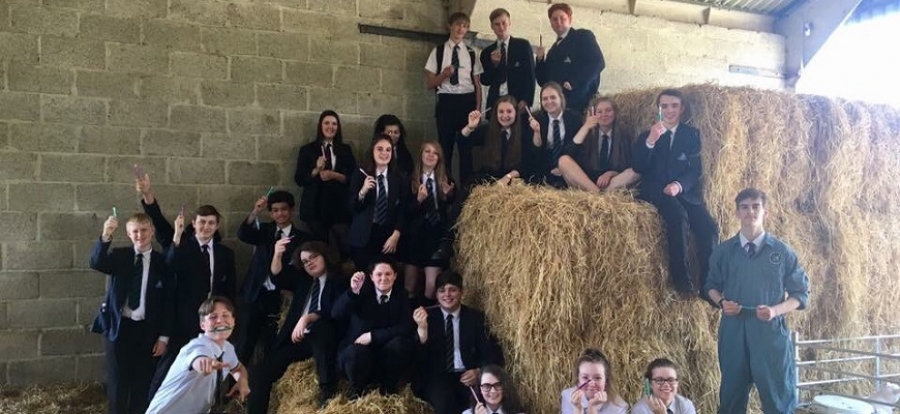The school prides itself on its farm, which is a working farm and home to beef cattle – a suckler herd with calves, allowing students to see the whole lifecycle from artificial insemination to birth, and ultimately to finished beef and into the school’s own Farm Shop – and a flock of ewes, which lamb each spring, plus free-range hens and a small menagerie of furries.
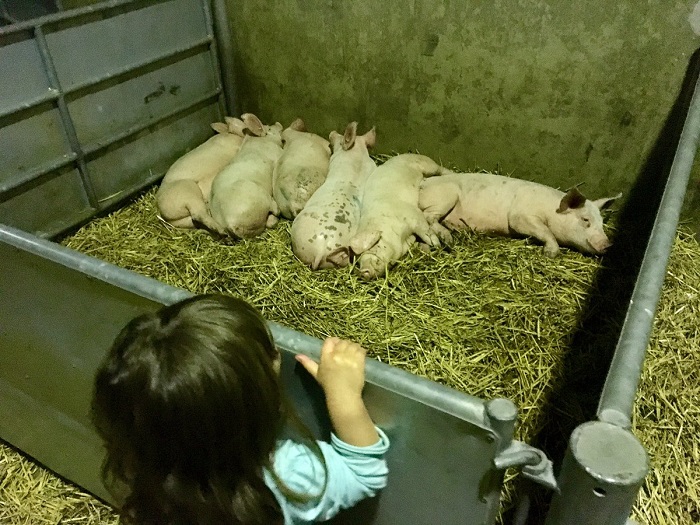
The Brockhill Farm has found real success partly through embedding its ethos throughout the whole school curriculum. Here is how they did it:
1. Engage the school staff
Farm Fortnight is an annual curriculum event. Every department in the school is challenged to teach one lesson on the farm using the farm as a stimulus. Some departments have taken this one step further, and have built in schemes of work that focus entirely upon the use of the farm. For example, Design Technology have a bird feeder innovation challenge that is taught yearly, whilst the Maths department have embedded a series of Maths challenges around the farm. There’s always lots going on during the fortnight – typically lambing ewes, calving and hatching chicks.
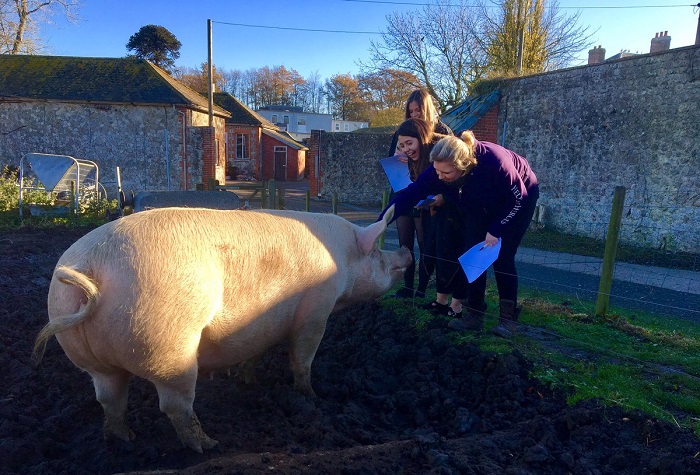
2. Make it part of the curriculum
The Great Outdoors programme of study (GO) was developed as an enrichment programme for all Key Stage 3 students. GO encourages students to learn through outdoor experiences, which removes them from the traditional book teacher-led learning styles, by encouraging hands-on, practical work.
Topics in the GO course include:
‘Reaping the Harvest’
In this lesson, students learn about the ‘grain train’ - the science behind the food, types of bread, and how bread is made, and they get to make a simple soda bread in the lesson.
‘Sausage Sale’
This exercise is based around pig production. Students visit the school farm pigs and analyse the accommodation and feeding. Students design a new logo for the popular ‘Brilliant British Brockhill Bangers’ made from Brockhill pork, and the winning design is reproduced and used in Sausage Sales held in the school’s Farm Shop. Students also get involved with the promotion and running of the sale.
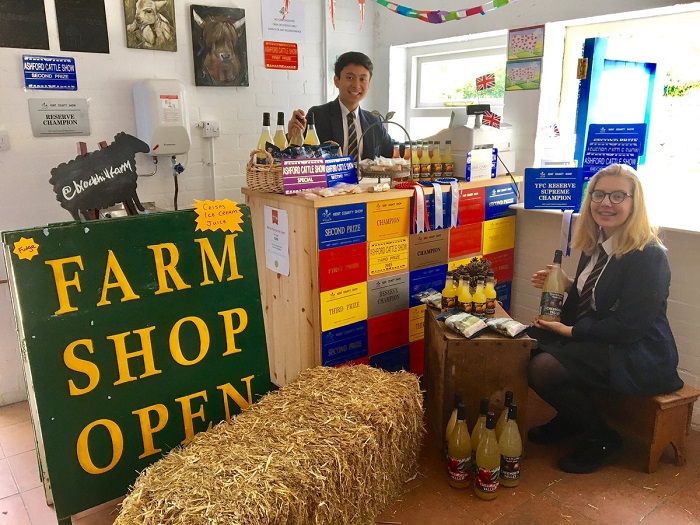
3. Engage teenagers
The school’s Young Farmers Club is incredibly popular, and is run democratically by the students for the students through a club committee. They run regular social events, including Halloween and Christmas parties, and events to engage the public including Open Farm Sunday. The main purpose of the club is to teach animal husbandry and show technique, and the members enjoy showing the school’s livestock at agricultural shows in the South East.
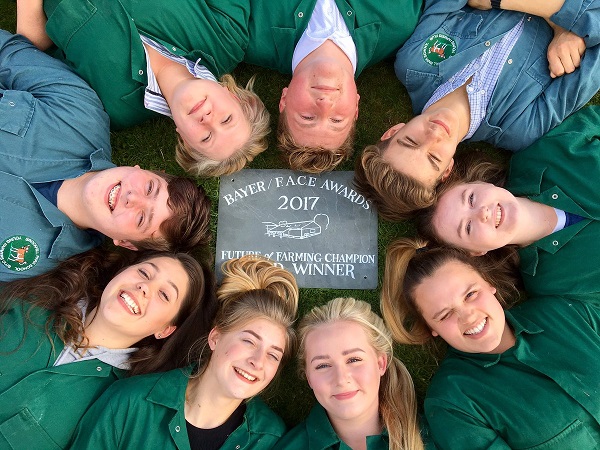
4. Extend your provision
Following consultation with local Primary teachers, Brockhill developed and wrote a set of six curriculum-linked lessons for Primary students, all of which include an outdoor activity for students to get their hands dirty, and an inside one to develop learning further. A favourite session is Moo & Make for KS1, looking at variation and species of farm animals, and how they have adapted for survival. This session includes a farm tour, introduction to animals and a craft session making animal masks to take home.
5. Make it your USP
The school farm is a fantastic marketing tool - the farm makes Brockhill stand out from the crowd. Everyone loves to see children and animals together, and there are lots of beneficial influences on behaviour and wellbeing, with a positive impact on the education and lives of young people. Promoting this through photographs, social media, prospectuses and press releases has been enormously beneficial to Brockhill, and I’d encourage any school to explore the idea of starting their own farm further.
Here is what our #schoolfarm does #schoolfarmsrock #farm24 @schoolfarmers @SouthEastFarmer pic.twitter.com/cdapXD7Qo2
— Brockhill Farm (@BrockhillFarm) August 10, 2017
Want to receive cutting-edge insights from leading educators each week? Sign up to our Community Update and be part of the action!


